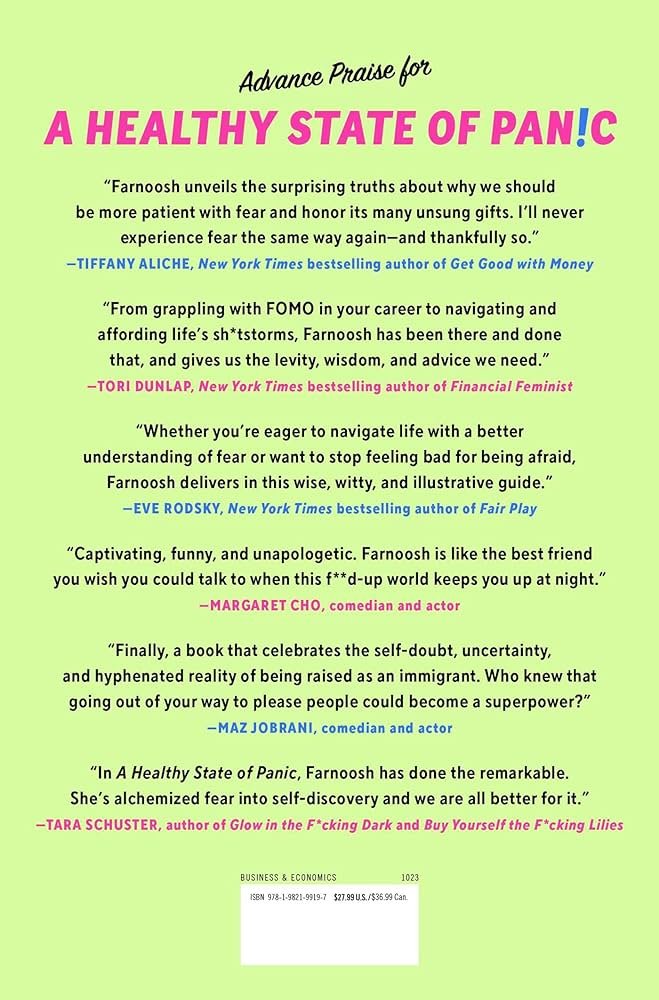Running at night can be effective for weight loss as it creates a calorie deficit. Exercising in the evening suits many people’s schedules and can help to maintain a consistent fitness routine.
As daylight hours dwindle, many turn to the night time to fit in their runs. Running after the sun sets might just be the perfect solution for those juggling busy schedules, as well as providing a cooler and more tranquil environment.
Engaging in physical activity, such as running, is a cornerstone of any weight loss strategy. It not only burns calories but also boosts metabolism and muscle strength. With fewer distractions and typically less traffic, nighttime runs can offer a more focused session for those with weight loss goals. Ensuring safety with proper gear and visibility is paramount when choosing to run during the darker hours. Consistent evening workouts can also encourage better sleep patterns and potentially lead to healthier eating choices, further supporting one’s weight loss journey.
The Lure Of Nighttime Running
As the sun sets, a different kind of runner emerges: the nighttime runner. With the quiet streets and cooler air, running at night entices many with its unique charm. The pull of the evening is strong for those wanting to escape the chaos of the day, or simply to enjoy the tranquility and cooler temperatures that night provides.
Benefits Of Running After Dark
Running after dark has surprising benefits:
- Cooler Temperatures: Lower temperatures can boost performance.
- Peaceful Environment: Less traffic and noise make for a relaxing run.
- Flexible Schedules: Fit exercise into busy days more easily.
Nighttime running could also aid in weight loss. The cool air helps runners work harder with less strain. A peaceful run can reduce stress, which is linked to weight gain. With fewer disruptions, runners can maintain a steady pace, burning calories efficiently.
Prevalent Myths About Evening Exercise
Despite the benefits, myths about nighttime exercise persist. Let’s debunk these misconceptions:
| Myth | Truth |
|---|---|
| Running at night disrupts sleep: | Most runners report better sleep after evening runs. |
| Evening workouts are less effective: | The body’s performance can peak in the evening. |
| It’s unsafe to run in the dark: | With proper gear and awareness, it can be perfectly safe. |
Running at night might just be the secret to shedding those extra pounds. With the world asleep, the roads offer a space where one’s fitness goals can take the spotlight, uninterrupted.

Credit: www.amazon.com
Physiology And Weight Loss
In the quest to shed pounds, understanding the physiology behind weight loss is key. It’s not just about the calories in and calories out. Your body’s inner workings play a major role. Let’s explore how nighttime running impacts this dynamic process.
How Exercise Burns Calories
To lose weight, the body must burn more calories than it consumes. When you run, your muscles work hard and burn calories as fuel. This process is known as caloric expenditure. The intensity and duration of your run, along with your body weight and metabolism, determine how many calories you burn.
- Running speed influences calorie burn (faster speeds burn more).
- The body continues to burn calories post-run, a phenomenon called afterburn.
- Regular running can increase muscle mass, boosting your resting metabolism.
The Body Clock’s Role In Metabolism
Your circadian rhythm, or body clock, regulates your metabolism. It tells your body when it’s time to be awake, sleep, eat, and also, manage energy. Running at night can sync with your body’s natural processes to maximize weight loss.
| Time of Day | Metabolic Rate | Weight Loss Potential |
|---|---|---|
| Night | May increase with evening exercise | Could be higher due to physiological changes |
Night runs might align with your body’s peak fat-burning time, depending on your unique circadian rhythm. However, it’s important to note that consistent exercise, regardless of time, is vital for sustained weight loss.
Safety Concerns And Precautions
Running at night can be effective for weight loss. Yet, it comes with safety concerns. It’s crucial to take the right precautions to stay safe. We must consider visibility, potential hazards, and personal security.
Essential Gear For Night Jogging
To ensure safety during your nocturnal runs, equip yourself with gear that:
- Enhances visibility: Reflective clothing and light-up accessories.
- Improves perception: Headlamps to spot obstacles.
- Ensures communication: Carry a phone for emergencies.
- Maintains hydration: Wear a water belt.
Choosing Safe Routes And Times
Run in well-lit areas with minimal traffic. Look for places like:
- Public parks with evening lights.
- Local community tracks.
- Busy streets with wide sidewalks.
Pick times with high visibility and low crime rates. Early evening is often safer than after midnight. Be aware of your surroundings. Always let someone know your route.
Balancing Diet And Evening Workouts
Running at night could help with weight loss, but it’s not just about the exercise. What you eat after your workout is key. A balanced diet enhances your fitness journey. The right nutrients help the body recover and keep late-night cravings at bay. We’ll explore how to manage your diet effectively with evening workouts.
Nutrition Tips for Post-Run RecoveryNutrition Tips For Post-run Recovery
After a night run, your body needs to refuel. It’s important to eat the right food. Here are some tips to consider:
- Proteins are crucial—they help repair muscles.
- Carbohydrates replenish energy stores in your body.
- Stay hydrated—water is best, but you can include drinks with electrolytes.
Aim for a balance of carbs and proteins. A ratio of 3:1 works well. This could be a small serving of chicken and rice or a protein shake with a banana.
Avoiding Late Night Eating TrapsAvoiding Late Night Eating Traps
Avoiding eating traps late at night is pivotal. Here are strategies to dodge those traps:
- Set a food cutoff time. Try not to eat 2 hours before bed.
- Opt for light snacks. Choose yogurt or a handful of nuts.
- Listen to your hunger cues. Don’t eat out of boredom.
Keeping a consistent schedule helps your body know when to expect food. This can reduce overeating at night.
Case Studies And Success Stories
Exploring real-life success stories provides motivation and insight.
The journey of weight loss is unique to everyone.
Night running has its own set of benefits:
- Quieter streets
- Cooler temperatures
- Convenience for those with busy schedules
Let’s dive into some inspiring cases of individuals who found success with night running.
Real-life Examples Of Weight Loss
Case studies show the impact of running after dark.
| Name | Duration | Weight Lost | Notes |
|---|---|---|---|
| Emily | 4 months | 20 lbs | Embraced cooler evenings for runs |
| John | 6 months | 25 lbs | Incorporated interval training at night |
Stories like Emily’s and John’s are not unique.
Many find encouragement in the cloak of night.
Lessons Learned From Night Runners
Tips and tricks emerge from those who tread under moonlit skies.
- Always wear reflective gear.
- Map out safe, well-lit routes.
- Listen to your body’s energy levels.
These nuggets of wisdom can help create a successful night running routine.
Each night run takes you a step closer to your weight loss goals.

Credit: www.fresherslive.com
Expert Recommendations
Fitness gurus often debate the perfect time to run. Many agree that running at night offers unique benefits for weight loss. Lose weight effectively by tapping into the tranquillity of the evening. Let’s explore expert advice on timing and integrating night running into your routine.
When To Run For Optimal Results
For many, evening hours might be the best time to run. After a day’s activities, your body is fully awake and muscles are warm, reducing injury risks. Running post-dinner can also prevent late-night snacking, aligning with weight loss goals.
Most experts suggest waiting at least one hour after eating before running. This prevents discomfort and maximizes energy usage. A consensus among trainers points to running between 7 PM to 10 PM as an optimal window. During this time:
- Your body’s temperature peaks, which may increase endurance.
- Melatonin levels are lower, making you feel alert and energized.
- Nighttime quiet can help clear the mind, making runs more enjoyable.
Integrating Night Running Into A Holistic Weight Loss Plan
Relying solely on night running isn’t a silver bullet for weight loss. To see results, incorporate it into a larger plan. Balance running with a healthy diet and adequate sleep. A holistic approach might include:
| Component | Details |
|---|---|
| Diet | Eat balanced meals with plenty of vegetables, lean proteins, and whole grains. |
| Hydration | Drink water throughout the day. Avoid heavy meals before running. |
| Sleep | Aim for 7-9 hours of quality sleep to allow for muscle recovery. |
Furthermore, cross-train with strength exercises to boost metabolism. Track your progress with a journal or app. Lastly, set realistic goals and celebrate small victories for motivation.

Credit: www.myjuniper.com
Frequently Asked Questions For Is Running At Night Good For Weight Loss
Is It Better To Run At Night Or During The Day?
Running during the day benefits from natural light and may align better with your circadian rhythm. Running at night can be cooler and less crowded. Personal preference and safety are key factors in deciding when to run.
What Is The Best Time To Run To Lose Weight?
The best time to run for weight loss is whenever you can consistently fit it into your schedule, as regularity is key. Early morning runs may boost metabolism, but the most important factor is maintaining a routine that aligns with your lifestyle and preferences.
Is It Healthy To Go For A Run At Night?
Running at night can be healthy if safety measures are taken. It cools down the body, aids sleep, and fits into busy schedules. Always wear visible clothing and choose well-lit, safe routes.
Can I Still Lose Weight If I Exercise At Night?
Yes, you can lose weight by exercising at night as long as you maintain a caloric deficit and adhere to regular workouts. Evening exercise does not affect weight loss efficiency.
Conclusion
Running at night can be an effective strategy for shedding pounds and achieving fitness goals. It offers unique benefits, like cooler temperatures and fewer distractions. Remember, consistency and safety are crucial for long-term success. So, lace up those sneakers and embrace the tranquility of nocturnal jogs for potential weight loss triumphs.



